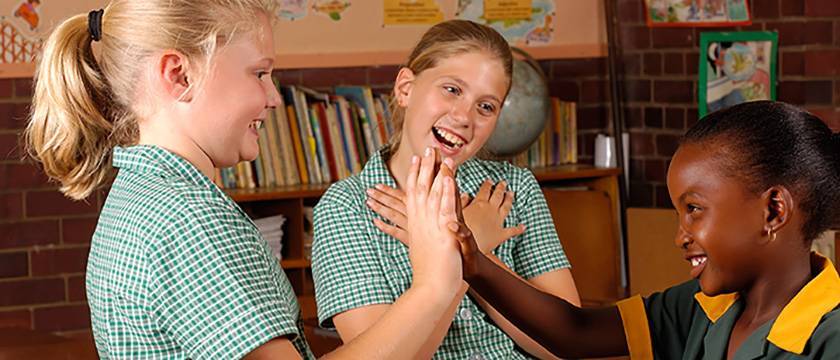
Assessing general capabilities
Research 18 Nov 2015 4 minute readAssessing and reporting on student learning in general capabilities is a challenge, yet these are essential skills for twenty-first century learners.
Since the Melbourne Declaration on Educational Goals for Young Australians in 2008 identified the essential skills for 21st-century learners, the Australian Curriculum has guided teaching and learning in terms of general capabilities as well as traditional content.
In the Australian Curriculum, teachers are expected to teach and assess general capabilities to the extent that they are incorporated within each learning area. The Australian Curriculum, Assessment and Reporting Authority (ACARA) defines general capabilities as the ‘knowledge, skills, behaviours and dispositions that, together with curriculum content in each learning area and the cross-curriculum priorities will assist students to live and work successfully in the 21st century.’
General capabilities include competencies such as literacy, numeracy, information and communication technology (ICT), critical and creative thinking, personal and social capability, and ethical and intercultural understanding.
Speaking at Research Conference 2015, Julian Fraillon, Director of ACER’s Assessment and Reporting– Mathematics and Science Research Program, said unlike subjects such as maths, there are several challenges to assessing general capabilities that, unlike traditional curriculum content, are a relatively new area for assessment.
According to Mr Fraillon the challenges in assessing general capabilities include:
- teachers’ lack of familiarity with and confidence in identifying general capabilities
- students’ lack of awareness of general capabilities as domains of learning
- lack of available resources to support assessment
- lack of time and the pressure of a crowded curriculum, and
- the influence of context on expressions of performance.
One way to address these challenges, Mr Fraillon said, is to make students explicitly aware of their learning in the general capabilities. One danger in using a cross-curricular approach to teaching and assessing general capabilities is that the general capabilities can become secondary to the subject disciplines in which they are embedded.
‘It is not sufficient to assume that by integrating activities related to the learning of general capabilities in classes that students will achieve the intended general capabilities learning outcomes; it is important to make sure the connections being made to general capabilities are explicit to students,’ Mr Fraillon said.
Also speaking at Research Conference 2015, Dr Rosemary Hipkins, Chief Researcher at the New Zealand Council for Educational Research, noted that one of the issues in assessing general capabilities is whether they should be assessed on top – or instead – of traditional content.
‘If we are serious about preparing students for the future, outcomes for learning need to be re-imagined at the complex intersection of capabilities and traditional content prior to determining any assessment approaches,’ Dr Hipkins said.
‘In our most recent research we have found it useful to encourage school leaders and teachers to think about key competencies as “ideas to think with”.
‘If we restrict our thinking about capabilities to “things students should get more of” it is too easy to fall back into familiar outmoded curriculum assumptions and miss the profound change potential in the very idea of building capabilities.’
A recent analysis of 21st-century competency-based frameworks identified four common sets of outcomes: collaboration; communication; literacy in ICT; and social and cultural skills, and citizenship.
Dr Hipkins maintains that both the Australian Curriculum and New Zealand Curriculum key competencies point towards these sorts of outcomes, yet teachers will need more support.
‘Some rich opportunities to demonstrate capability will be available in settings beyond the school. But how to gather, moderate and add that evidence to a record of learning is a challenge that most schools have yet to address,’ Dr Hipkins said.
ACER through the Centre for Assessment Reform and Innovation is working on the development of scales for assessing and monitoring growth and improvement in general capabilities, as well as in fundamental skill areas such as reading and numeracy.
Further information:
Read more about the Centre for Assessment Reform and Innovation’s approaches to new thinking, new technology and new resources.
